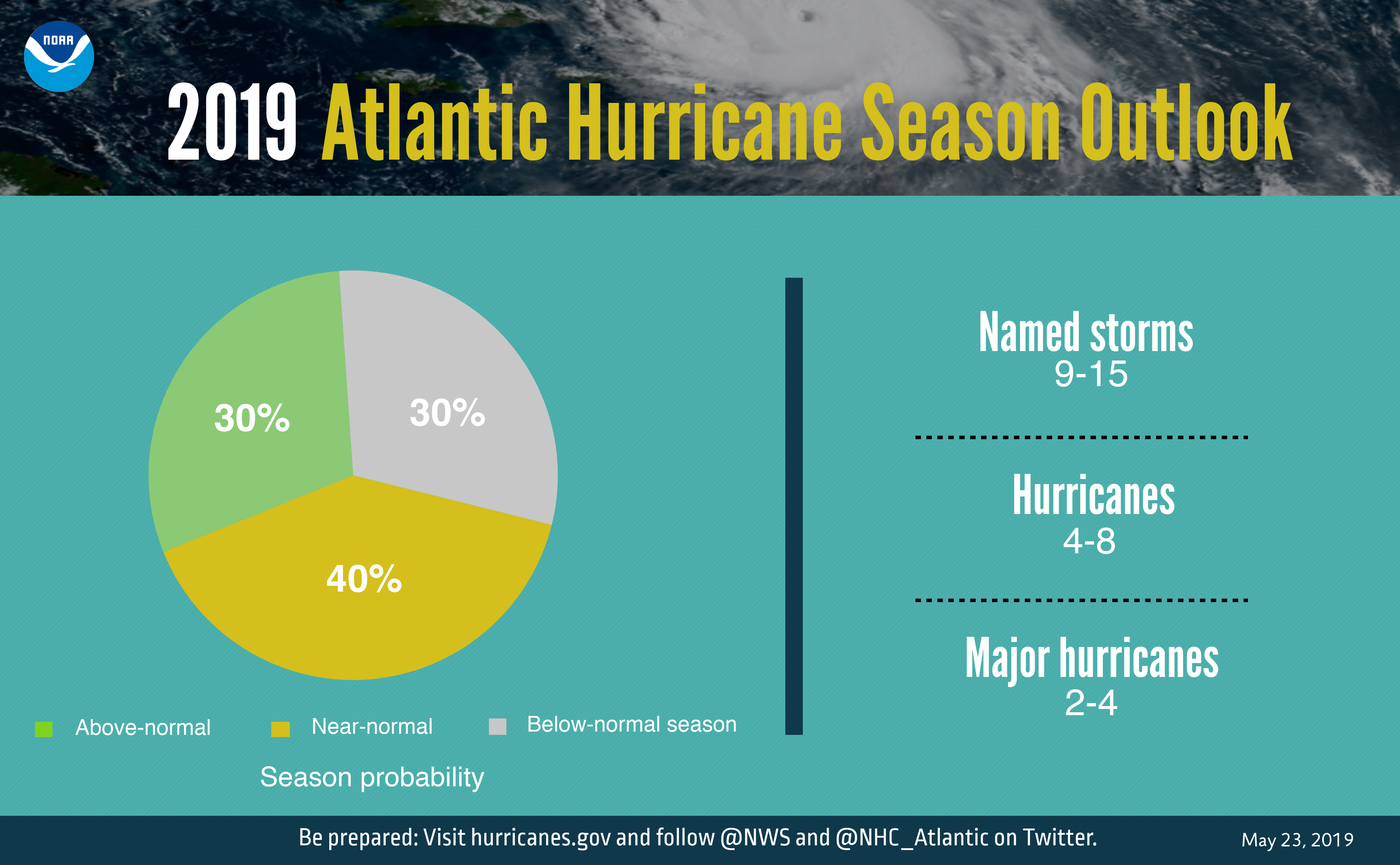Economy
Ahead of Hurricane Season, More Than 7 Million Homes Are at Risk

Published:
Last Updated:

The 2019 U.S. hurricane season officially begins Saturday, June 1. The National Oceanic and Atmospheric Administration’s (NOAA’s) Climate Prediction Center forecasts a near-normal Atlantic season this year, with a 30% chance that the season will be either above or below normal.
[in-text-ad]
An average year have 12 named storms, half of which develop into hurricanes, including three that become major hurricanes. This year NOAA expects nine to 15 named storms, four to eight hurricanes and two to four major hurricanes.
To coincide with the beginning of hurricane season, housing market analysts at CoreLogic have released their 2019 Storm Surge Report on the potential for property damage related to hurricanes and tropical storms pummeling the 19 states along the Atlantic and Gulf coasts this year. The report focuses on storm surge, the water that is pushed ahead of the storm that can cause more severe damage even than the high winds associated with hurricanes.

More than 7.3 million homes along the Atlantic and Gulf coasts are at risk for damage totaling nearly $1.8 trillion from storm surges this year. According to CoreLogic, the 2018 Atlantic Hurricane season saw 15 named storms, eight of which were hurricanes. Two of these, Hurricanes Florence (Category 1) and Michael (Category 4), made landfall on the United States. Last year was the third back-to-back season of above-average hurricane activity in the Atlantic. Some of the hurricanes were so massive, they made the list of causing the worst floods in American history.
When calculating potential hurricane damage, CoreLogic uses a metric it calls reconstruction value, or RCV, that is calculated based on the total (100%) destruction of the residential structure using the combined cost of construction materials, as well as equipment and labor, even though all properties damaged by a storm surge may not be totally destroyed.
Along the Atlantic Coast, 4.1 million homes from Maine to Florida are at risk of storm surge damage this year. More than 3.1 million homes along the Gulf Coast, from the tip of Florida to Texas, are also at risk. Potential financial damage along the Atlantic Coast totals an RCV of more than $1.1 trillion, while the Gulf Coast RCV is about $668 billion. The greater population and housing density along the Atlantic Coast primarily account for the wide difference in estimated damage.
The state with the highest number of single-family homes at risk is Florida, where more than 2.8 million of them could face storm surges related to hurricanes in categories 1 through 5. Louisiana ranks second with nearly 840,000 homes at risk, and Texas ranks third with more than 555,000 homes at risk. The state has been the location for several of the most destructive hurricanes of all time.
New York and New Jersey, neither of which has homes at risk from a category 5 storm, nevertheless rank fourth and fifth, with risk to 471,000 and 467,000 homes, respectively.
The same five states also face the highest single-family RCVs due to storm surge damage. Florida leads with an RCV of $581.6 billion, followed by New York’s $194.4 billion, Louisiana with $182.5 billion (through category 4, up to $201 billion if category 5 storm damage is included), New Jersey with nearly $150 billion in RCV and Texas with $112.1 billion (including category 5 damage).
The metropolitan area facing the most 2019 storm surge damage is Miami, where about 792,000 single-family homes face RCV costs of $157.6 billion. New York City, with 731,000 homes at risk, has an RCV of $283.3 billion. No other metro has more than half a million single-family homes at risk from storm surge damage.
Even though the number of predicted storms is relatively small, as the effects of climate change ratchet up the intensity of these massive storms, any hurricane threatens to be added to the list of the most powerful storms in U.S. history
Thank you for reading! Have some feedback for us?
Contact the 24/7 Wall St. editorial team.